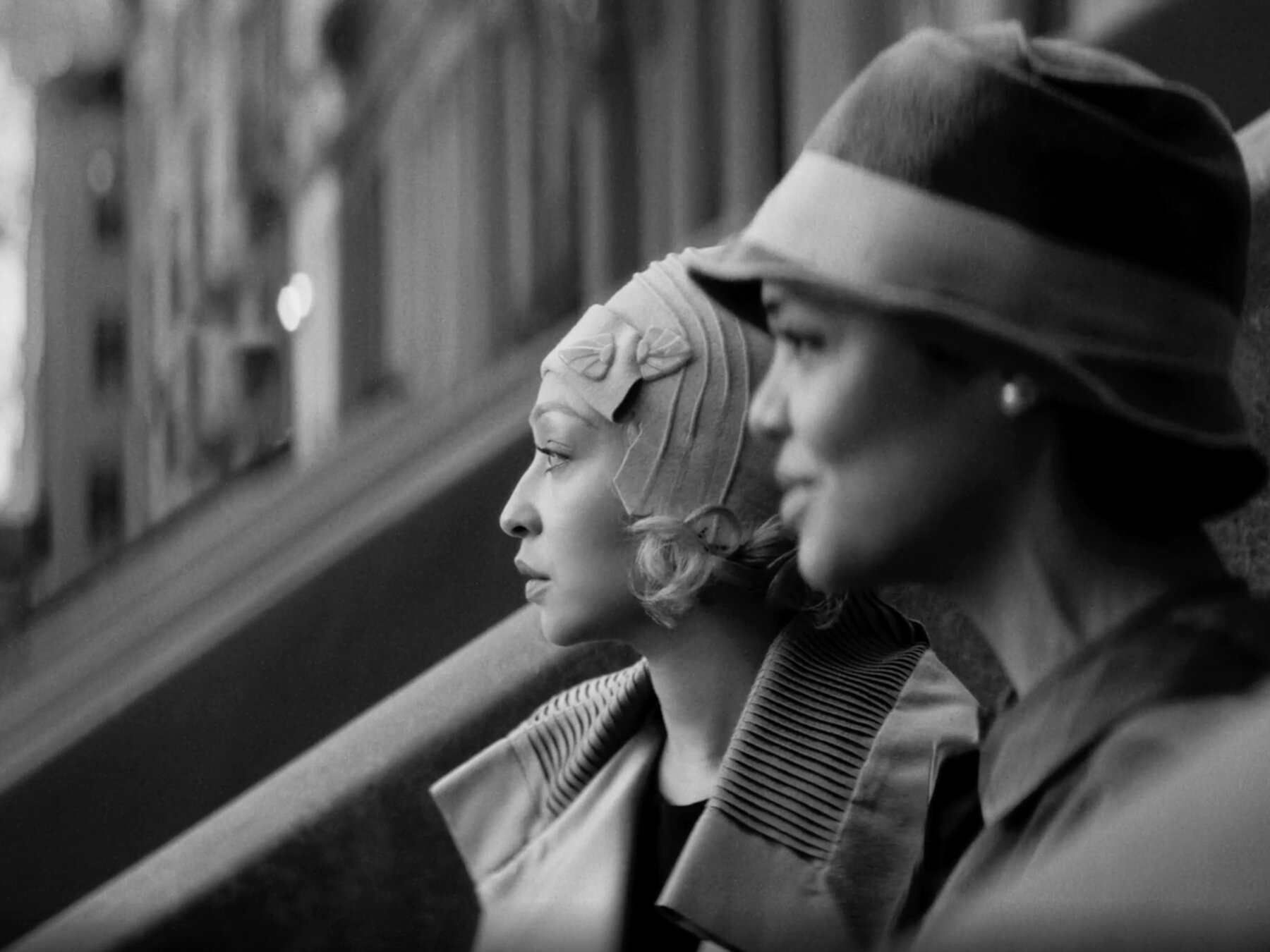Good old Netflix, just keep on churning. After the high profile nonsense known as Red Notice, the following week they give us Passing, which if the world were fair, should be considered an Oscar frontrunner next year. The roller coaster ride of Netflix releases doesn’t get much higher than this one, giving us great performances, a beautifully shot film, and a powerful emotional wallop with a loving, gentle touch. Passing is so good I can deal with the inevitable Red Notice 2 post inevitably coming from the streaming giant soon.
Passing is an expression I’d never heard before: lighter skinned African American would put on whitening makeup to “pass” for a white person that day, essentially to live like a white person for a day. While she is “passing” in 1920s Harlem, Irene Redfield (Tessa Thompson) randomly bumps into a childhood friend, Clare Bellew (Ruth Negga) at a NYC hotel. Clare is long-term “passing:” married to a white man, John (Alexander Skarsgard) and living in Chicago happily. However, Clare happens to be moving to New York, and, desperate for friends, she reaches back out to Irene, who reluctantly invites her into her life with her kids and husband, Brian (Andre Holland).
All those years in front of the camera gave Rebecca Hall the skills to pull of what she die with Passing. Normally shooting your movie in Black and White is a pretentious pander in Oscar season to add extra weight to you film. In Passing, it’s necessary, as dressing up Ruth Negga and Tessa Thompson in white face would be distracting and extremely controversial to see. But Hall displays a confident directing style, leaning into her color palette. There’s gorgeous slow slows drifting up into a snowfall, all white palettes in some lavish parts of NYC, and amazing period costumes that will have people demanding for vintage clothing. Hall also finds lovely tonal balance here, capturing Irene’s highs and lows as she navigates life when around Clare’s effervescence, but maintaining the point of view of Passing’s story throughout. This is about as confident a first feature I’ve seen, and gives me excitement to see what else Hall can do behind the camera.
But equal praise in Passing’s success goes to the two leads. Tessa Thompson, already an amazing actress, maybe does her best work ever here. Usually filled with swagger and bad assery, Thompson completely 180s here as Irene. You can feel the anxiety and discomfort from every pore in Irene’s body in every scene, completely unsure of who she is and second guessing every choice she makes. Thompson also sells those brief moments of elation, when her decisions go right and she actually feels happy, if only fleetingly, only to come slowly, painfully back to Earth as each little strange feeling consumes Thompson’s fragile persona. Thompson also has a great scene partner: Ruth Negga is a revelation here if people don’t know who she is already. Negga’s job is to be Thompson’s opposite: a carefree enthusiastic optimist completely comfortable living a lie and emotionally wearing her heart on her sleeve. The character is designed to be enigmatic to Irene, which allows Negga to transform Clare as the scene requires. Like Irene, you can’t help but be enraptured by Clare, a testament to Negga’s talent and performance.
I don’t know how many people will rewatch Passing: for Netflix, it feels more like an Oscar bid than something people keep revisiting for a good cry. I just hope that it stays at the top of the Netflix algorithm for a pretty long time so intrigued viewers give it a shot. While they might be emotionally wrecked by Passing, they’ll also be impressed at the quality of the filmmaking, acting, and storytelling: something that will NEVER be said about Red Notice.

